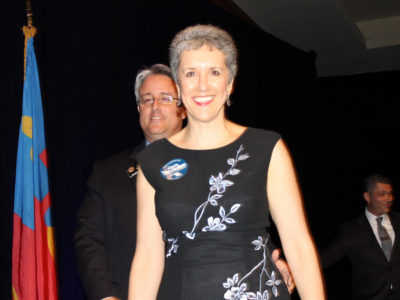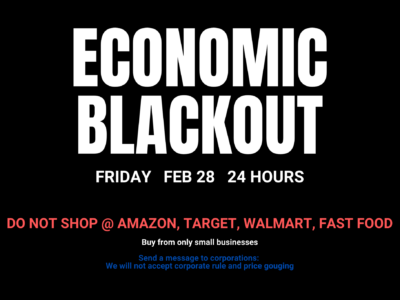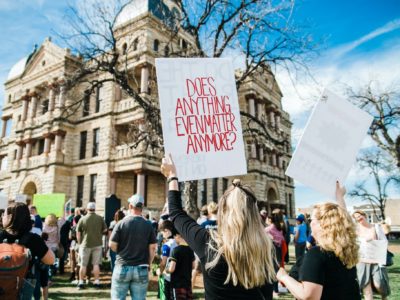No one dissents quite like Senator Cheryl Kagan. On inauguration day she held an UnNaugural Concert to raise money for many of the causes Trump poses a threat to. Bringing 500 people together the day before the Women’s March, in solidarity against a hateful agenda, is just one of the ways Senator Kagan has doubled down to do the work that needs to be done. A firm believer in the power of women’s voices to make a difference, she refuses to sit down and stay quiet. We’re going to need more fearless women like her in our push to reach 50% of women in congress by 2050.
Cheryl Kagan Career Timeline
1983 – Graduated from Vassar College with a bachelor’s degree in political science
1994 – Elected to the Maryland House of Delegates
2014 – Elected to the Maryland State Senate
Q&A with Inspirational Women Leader Senator Cheryl Kagan
Q: At College Magazine we’re working together with EMILY’s List, Emerge America, Human Rights Campaign, Higher Heights, She Should Run, Victory Fund and IGNITE on an initiative to fight for equal representation in congress called “50 by 2050.” What are your thoughts on the goal of achieving 50 percent of women in Congress by 2050?
A: Oh my gosh. I think it’s fantastic and important and we can start at the state legislative level. Years ago I worked at the National Women’s Political Caucus and we used to talk about the pipeline. It doesn’t always happen this way, but most of the time, people start in local government in elected office and work their way up. So we need to start by electing women as council members and commissioners and then state legislators and ultimately send them to Congress—to bring a woman’s voice and perspective and life experience to Washington.
Certainly there are women who’ve served in the military or who’ve run businesses or who’ve been community activists or nonprofit leaders who can go straight to Congress, but oftentimes it can be useful to get state or local experience in elected office first.
Q: How did you decide that you wanted to get involved in politics? What inspired you?
A: Let me tell you a story about when I was at Vassar. I always thought that being a person who supported peace and freedom and equality and justice and clean environments and a reasonable budget, I always thought that made me a moderate. And I discovered my first semester, freshman year, that made me a liberal. I decided that I needed to get involved in politics and the first of those ideas was that I needed to engage on those issues.
I ended up walking in off the street as a volunteer in a presidential campaign—and ended up as paid staff on the floor of the democratic convention by the end of that summer. This was 1980. It was on Ted Kennedy’s presidential campaign and, as a Marylander, it was easy for me to get on a bus and go down to D.C. to the national office and work with and get to know some of the top leaders of the national campaign headquarters.
There are very many exciting attributes or benefits of being involved in politics. One is the really smart, passionate, and effective leaders you get to know and work with. And another is, truly, one person can make a difference. I had that experience in college and its part of what inspired me to get connected politically.
I will tell you, the morning after election day, this past November, when many of us were pretty despondent and frightened by the election results, I was thinking about what I could do—because I couldn’t single-handedly protect the Supreme Court or change the election results. But I came up with the idea of combining my political skills, my fundraising skills, and my connections in the music world—I’ve hosted a music series for 15 years—and I ended up founding and producing an UnNaugural concert.
I ended up getting five performers. We raised money for five protective causes. Specifically ACLU, Planned Parenthood, League of Conservation Voters, the National Gay and Lesbian Task Force, and the Brady Campaign to Prevent Gun Violence. We raised $60,000 and had 500 seats sell out a few weeks in advance. And that was one person’s idea and then recruiting a bunch of folks to be engaged and I had a wonderful steering committee and amazing performers and generous donors and I had two county executives, I had the attorney general of Maryland. I had a member of Congress and local elected officials and legislators. So I think that one person with passion and vision and the ability to recruit support from others, and use social media and reach out to the community and be organized and effective, any one person can make a difference.
I served 8 years in the House, and a lot of times, once people are elected they kind of stay elected. And I think people stay in office too long sometimes and I decided not to seek re-election after 8 years and went back into the community and ran a charitable foundation and stayed active in politics and in the community and it’s 12 years later that I came back and was elected to the senate. While I believe we must have more women running and serving in elected office, one doesn’t always need a fancy title in order to make a difference.
Q: What issues are you most passionate about?
A: I consider myself to be the senator for the nonprofit sector. Because of my background I have been a founder, a funder, a volunteer, a board member, so there’s a lot I am doing and have done for that sector. I have two nonprofit bills this year, both of which are moving, which is exciting. One of them establishes a short-term microbridge loan for nonprofits that have government grants or contracts that are coming through, but sometimes the bureaucracy around getting the money processed can cause such a delay that it causes a cash flow crisis and they just need 5 or 10 thousand dollars to pay staff and pay their rent and all of that in order to continue focusing on their mission. So this is a new fund that I take it will have a great impact for the sector. So working for and advocating for the nonprofit sector is really important to me.
I have three consumer bills this year. They deal with consumer privacy and data protection and bait and switch issues, so I’m working on those. And also, my district is comprised of two large municipalities. So I also work very hard on issues that effect municipalities.
And I will mention one more issue. I was a lobbyist with Jim and Sarah Brady on gun control issues—the handgun waiting period—the Brady Bill, as well as the assault weapons ban back in the ‘90s. So public safety is something that I have often been focused on.
Q: Over the last few months in particular, we’ve seen a lot more women running for office. How do you feel that will end up shaping our political landscape?
A: I think that our president scares a lot of us—terrifies a lot of us. So whether it’s about our reproductive choices, the denial of climate change, his hateful and divisive thoughts on immigration, or his foreign policy priorities—I think a lot of us are deeply concerned and have decided to speak out in a way that many have never done before. And that does make a difference. Keep doing it.
It may sometimes feel discouraging and progress can be hard to spot sometimes—it can be incremental, it can be slow—but smart, talented, effective, constructive thoughtful activism is very effective. And elected officials hear it and see it, so keep doing it. We really have to speak out. It is the only way that members of Congress, and members of the executive branch, will hear us.
There is much study that shows that men self-identify but women have to be asked to run. So consider yourself having been asked and never say never. Pay it forward. Talk to other women about running. We all just have to encourage each other. We don’t have to know every issue before ever running, we just have to jump in and be willing to take a try. Get out there and talk to people and listen and learn.
Q: Can you speak a little bit about your experience running for the senate?
A: Well I ran twice. As I said, I had run, I had served 8 years in the house. To be elected to the house was a ten-way race. There were two incumbents and then 8 of us going for the third seat—a former legislator, a former county council member, it was a good field and I just had to out-hustle and out-door-knock, and I did, and I won my first race—which doesn’t often happen for folks. Then I thought about running for the senate and I didn’t do it—my senator said she wanted one more term. And then four years later I thought about running for the senate and I talked to her and she said she wanted just one more term. And our terms are four years, so this is a long time. So I challenged her. She had been in office 32 years and I thought that was plenty long enough.
So I ran. I was endorsed by The Washington Post, all of green groups, the women’s groups, the largest chamber of commerce and the largest union. I really had a great coalition of supporters, but she had 32 years and incumbency and all of that and I lost by 300-something votes, and I was ok with that. I was like, “Ok, I get my life back.” But then the calls started coming for me to run the next term, and I didn’t want to do it because it was hard and you really have to put your life on hold. And long story short, it turns out that my successor in the House turns out to be a bad guy. He was bad on domestic violence and guns and just was really disliked.
I took him on. He out-spent me by a lot but I had a lot of money, I had a lot of supporters, and ultimately beat him handily, but it was a pretty brutal race and I had been warned that he would take no prisoners, and that was true.
Q: What do you think has been the most rewarding moment of your career?
A: The UnNaugural was pretty amazing. To give 500 people an opportunity to find a safe haven, an ability to be joyous and celebrate and be inspired and be ready to engage and speak out for the next four years while raising money. That was pretty amazing.
I just found out yesterday, for what it’s worth, that I was named one of Maryland’s top 100 women, and it was the third time, which means I’m going to be inducted into the Circle of Excellence which is like a hall of fame.
Q: Is there anything else you’d like to add?
A: Run! Run, run, run. Women need to run. We need more women’s voices in our legislatures at all levels.
How to Become a Powerful Woman Leader
1. Get involved
“Get involved in whatever makes you passionate—whatever issue, whatever candidate, it doesn’t matter,” said Kagan. “Pick something that motivates you and know that you will need to start small. Volunteer for anything that makes a difference.”
2. Be accountable
“Be reliable. Be enthusiastic. Stay in touch with people that you meet. Build a network,” said Kagan.
3. Be careful what you put online
“Use social media, but use it wisely—and remember that your Facebook posts or tweets can come back to haunt you, so be savvy about that,” said Kagan.
How to Connect with Senator Kagan
Contact her through her by email, letter, or phone:
203 James Senate Office Building
11 Bladen St., Annapolis MD 21401
(301) 858-3134
(410) 841-3134
1-800-492-7122, ext. 3134 (toll free)



















